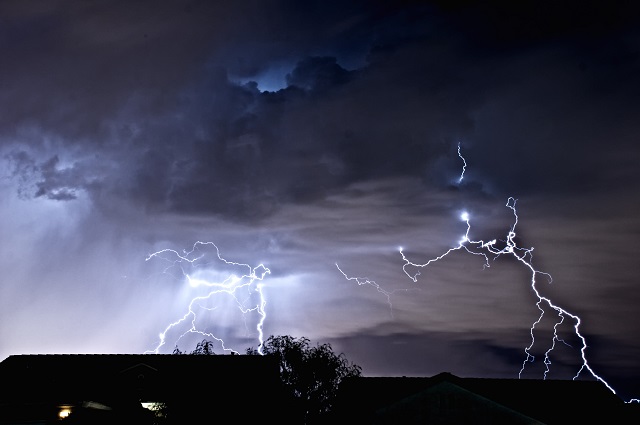News Story
(Below is a backup copy of the original article with as much credit to the publisher as well as the author that we can provide. By no means do we mean to violate any copyright laws. This page is appearing because someone indicated that the original story was unavailable.)
Family sues Panera Bread after college student who drank Charged Lemonade dies
An Ivy League student with a heart condition died after she drank Panera Bread’s Charged Lemonade, a large cup of which contains more caffeine than cans of Red Bull and Monster energy drinks combined, according to a lawsuit.
The legal complaint, which was filed Monday morning in the Philadelphia Court of Common Pleas and was first obtained by NBC News, calls the beverage a “dangerous energy drink” and argues that Panera failed to appropriately warn consumers about its ingredients.
The suit was filed on behalf of the parents of Sarah Katz, 21, a University of Pennsylvania student who had taught CPR in underserved communities and had been a research assistant at a children’s hospital. Katz had a heart condition called long QT syndrome type 1 and avoided energy drinks at the recommendation of her doctors, according to the filing.
Sarah Katz.
Sarah Katz.Courtesy Katz family
In a statement Monday afternoon, a Panera spokesperson said: “We were very saddened to learn this morning about the tragic passing of Sarah Katz, and our hearts go out to her family. At Panera, we strongly believe in transparency around our ingredients. We will work quickly to thoroughly investigate this matter.”
Katz bought a Charged Lemonade from a Panera Bread restaurant in Philadelphia on Sept. 10, 2022, according to the suit. She went into cardiac arrest hours later, said her roommate and close friend, Victoria Rose Conroy.
“She was very, very vigilant about what she needed to do to keep herself safe,” Conroy said. “I guarantee if Sarah had known how much caffeine this was, she never would have touched it with a 10-foot pole.”
Recommended
WORLD
China ousts missing defense minister in new leadership shakeup
ASIAN AMERICA
Filipino caregiver in Israel explains her decision to stay with her patient
The Charged Lemonade was “offered side-by-side with all of Panera’s non-caffeinated and/or less caffeinated drinks” and was advertised as a “plant-based and clean” beverage that contained as much caffeine as the restaurant’s dark roast coffee, according to photos of both the menu and beverage dispensers in the store, which were included in the wrongful death lawsuit.
But at 390 milligrams, the large Charged Lemonade has more caffeine than any size of Panera’s dark roast coffee, the complaint says — numbers that the nutrition facts on Panera’s website confirm. It also has guarana extract, another stimulant, as well as the equivalent of nearly 30 teaspoons of sugar, the complaint continues, adding that 390 milligrams of caffeine is higher than the caffeine content of standard cans of Red Bull and Monster energy drinks combined. Katz had gotten the large cup, which is 30 fluid ounces, according to the attorney representing her family.
“I think everyone thinks lemonade is safe. And really, this isn’t lemonade at all. It’s an energy drink that has lemon flavor,” said Elizabeth Crawford, a partner at the Philadelphia-based law firm Kline & Specter, PC. “It should have an adequate warning.”
The lawsuit alleges the Charged Lemonade is “defective in design because it is a dangerous energy drink.”
“These unregulated beverages include no warning of any potentially dangerous effects, even the life-threatening effects on blood pressure, heart rate, and/or brain function,” it says.
Conroy described Katz as an excellent student and “the most involved and passionate person I’ve ever met,” someone who would smile and wave to everyone on campus. She was careful to tell people that she could not consume energy drinks and made other modifications for her health condition, but she “never let it stop her from achieving the things that she wanted to do,” Conroy said.
Katz was diagnosed with long QT syndrome at age 5, Crawford said. The American Heart Association describes long QT as a disorder of the heart’s electrical system that can cause abnormal heart rhythms as a result of exercise or stress; it can be well-managed with medication.
In addition to medication, Katz’s condition was controlled by regular doctor visits, where “everything was always normal,” Crawford said.
About 1 in 2,000 people have congenital long QT syndrome, with some showing no symptoms and others fainting or experiencing heart palpitations in response to triggers such as exercise or being startled, said Dr. Charles Berul, an electrophysiologist at Children’s National Hospital in Washington.
Berul, who did not treat Katz and is not involved in the lawsuit, said caffeine is allowable in moderation for long QT patients.
“We tell people not to worry, it’s fine to have a Coke or a small coffee each day,” said Berul, who is on the board of trustees of the Sudden Arrhythmia Death Syndromes Foundation, an advocacy organization for those with heart rhythm abnormalities.
Panera Charged Lemonade
Charged Lemonade at Panera Bread in Walnut Creek, Calif., in March.Smith Collection / Gado via Getty Images
“But some of the smaller studies have shown that energy drinks, drinks that have caffeine plus other ingredients like taurine, other things, might be a little riskier,” Berul said.
The lawsuit says Katz bought an Unlimited Sip Club membership from Panera, which allows customers to pay a monthly fee for unlimited drinks, about a week and a half before she died. Conroy said Katz had bought at least one other Charged Lemonade in the days before her cardiac arrest.

